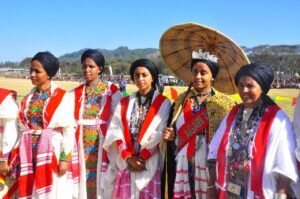-
- Forum
- Topics
- Freshness
-
-
EthiopiansWhat is happening among Ethiopians at home and in diaspora
- 80
-
ExposedIn the interest of the public, it's the duty of the media to make sure that such people are exposed.
- 1
-
FabulousThe unusual incredible, exceptionally good or unusual, things that are almost impossible to believe.
- 1
-
Food for thoughtWe all need mental stimulus to help us think more-intellectual nourishment.
- 1
-
Ludicrous WorldBizarre things, that are either foolish, crazy, comical and laughable.
- 3
-
Real lifeThe practical world as opposed to the academic world
- 2
-
Selfie cultureThe selfie culture is the result of the global culture of Vanity
- 0
-
No Topics
-
Social TourismTourism refers to the temporary travel of individuals outside their usual environment, an activity which is more common today than ever before. In 2022, there were more than one billion international tourist arrivals worldwide and international tourism receipts hit a new record of 837 billion euros, equalling to a 4% increase from the previous year. In addition, another five to six billion tourists are estimated to travel domestically every year. It is clear that the tourism industry is a significant contributor to the global economy, as it generates export earnings not only through international tourism receipts but also through international passenger transport. Consequently, international tourism accounts for 30% of the world’s exports of services, 6% of overall exports, and is ranked fifth as a worldwide export category, right after fuels, chemicals, food, and automotive products.
- 23
-
SpoilerA spoiler is an element of a disseminated summary or description of any piece of fiction
- 0
-
No Topics
-
There is currently 0 users and 8 guests online
No users are currently activeActivity within the past 24 hours: 0 users and 307 guests
Keymaster | Moderator | Participant | Spectator | Blocked
Additional Forum Statistics
Threads: 111, Posts: 319, Members: 1Welcome to our newest member, joramedia
Most users ever online was 1 on 13th October 2020 5:50 pm










